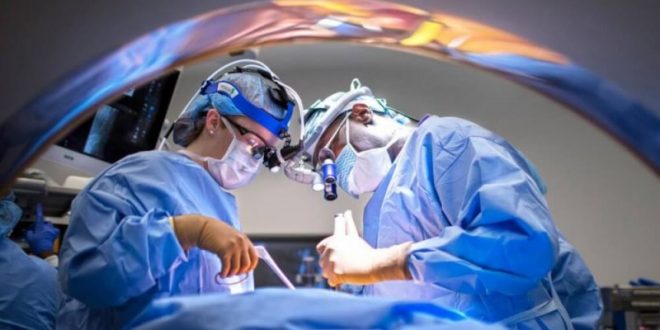In undergoing any type of surgery, be it for correcting any abnormalities or simply improving on what you already have, there is one thing that you should remember – It is not Perfect. In line with this, be realistic in your expectations with the surgery you will be undergoing, not only with the results but also with the procedure. Remember, it is a fact that all surgery, and I mean all, carries with it some level of uncertainty and some degree of risks.
Let’s take for example, the very popular laser resurfacing. This procedure, when performed by a qualified and experienced surgeon, can yield only little complications which are infrequent and usually just minor. However, because individuals vary greatly in their anatomy and their biological composition, then it is only natural that their physical reactions as well as their healing abilities along with the outcome are never completely predictable or the same. The risks associated with laser resurfacing include burns or other injuries from the heat of the laser energy, scarring, and obvious lightening or darkening of the skin. Also, the laser can also activate herpes virus infections (“cold sores”) as well as other types of infection. When it comes to the game for the quest of perfection, our genetic make-up, immunity and biological set-up throws the dice, shuffles the cards and determines just how close to perfection we can get.
However, we still have choices to make that can make half of the chance. There are some additional corrective measures and treatment that may be required if healing seems abnormal or delayed after surgery. You can also always go back to your surgeon or ask for a second opinion of another if there is any evidence of abnormal pigmentation or scarring after the surgery.
Whatever it is you’ll do after surgery though, is never half as significant as what you do before. The truth is, you can greatly reduce your surgical risks by choosing a qualified surgeon who has received special training in the special surgery that you will be getting. Like in the case of Laser resurfacing, not every practitioner who offers laser surgery has the same level of experience and skill with the laser use. That is why, not jut any surgeon will do and it is especially important that you find a plastic surgeon who is adequately trained in the procedure. If you have another type of treatment, look for somebody who is especially trained for such. As a safety measure for laser patients, they can find out whether their surgeon has privileges to perform laser resurfacing with a CO2 laser and in a really accredited hospital. Chances are, even if the operation is to be conducted in your doctor’s private facility, but the fact that he or she has the privileges to use that same laser in a hospital only ensures that the doctor has been reviewed by the institution’s experts themselves. This is an additional safety net. When it comes to your body, nobody should mess up with it unless the very best.
To help you in the quest for that deal surgeon, you can find a plastic surgeons by visiting the online referral service of the American Society of Plastic Surgeons (ASPS). The ASPS was founded in 1931 and is by far, the largest plastic surgery organization in the world and the foremost authority on cosmetic and reconstructive plastic surgery. All of the ASPS physician members are certified by the American Board of Plastic Surgery (ABPS) or the Royal College of Physicians and Surgeons of Canada.
Talking to a Surgeon
The initial consultation with your surgeon is very critical in your surgery. As a matter if you’re still looking for an assurance that you have the right surgeon in your folds, this talk is crucial for establishing that relationship of trust.
In this initial consultation, it is vital that you are prepared for it. Most likely, your surgeon will need your complete medical history so you’d better check ahead of time your own records and be ready to provide the appropriate information. If your surgeon will examine you and a medical problem is the suspected cause, then you’ll be referred to an appropriate specialist.
Do not be timid in your initial consultation, no matter how intimate your operation may be. It is always helpful if you are frank in discussing your expectations with the surgeon. Also, don’t hesitate to ask any questions if you may have some. If you will be so, then your surgeon should also be equally frank with you. See to it you’re your surgeon should also not miss out on explaining to you the factors that could influence the procedure and the results of your operation. You might also likely to discuss about any abnormal skin condition which has been diagnosed or previously treated, medications you are taking or have taken in the past, previous skin injuries or previous operations.
After your surgeon will discuss your medical history, he or she will also perform a routine examination as well as photograph the area to be treated. He or she should explain the procedure in detail, along with its risks and benefits, the recovery period, the costs and the likes. If he or she misses out on something, prompt up. Also ask whether your operation will be performed under local anesthesia with sedation or not. Ask if you’ll most likely be awake but relaxed during the operation or if you will feel minimal discomfort. In a nutshell, don’t hesitate to ask your surgeon any questions you may have during the initial consultation. This may anything – from your concerns about the recommended treatment or the costs that would have to be involved in the general procedures, including the ones that will follow the major operation. Heck, you can even ask up front your surgeon his or her qualifications, it is your right as a patient to be assured of your safety as well as the quality of service that you will be receiving. You might also want to inquire ahead of time if your treatment may be covered by medical insurance, just be patient too for policies vary greatly. To be sure, you can check your policy or call your carrier just to be sure. If you found out that you are covered, then make certain you get a written pre-authorization for the treatment as recommended by your competent surgeon.
 Lesbian, Gay, Bisexual, Transgender & Intersex News Lesbian News, Gay News, Bisexual News, Transgender News, Intersex News, LGBTI News
Lesbian, Gay, Bisexual, Transgender & Intersex News Lesbian News, Gay News, Bisexual News, Transgender News, Intersex News, LGBTI News




